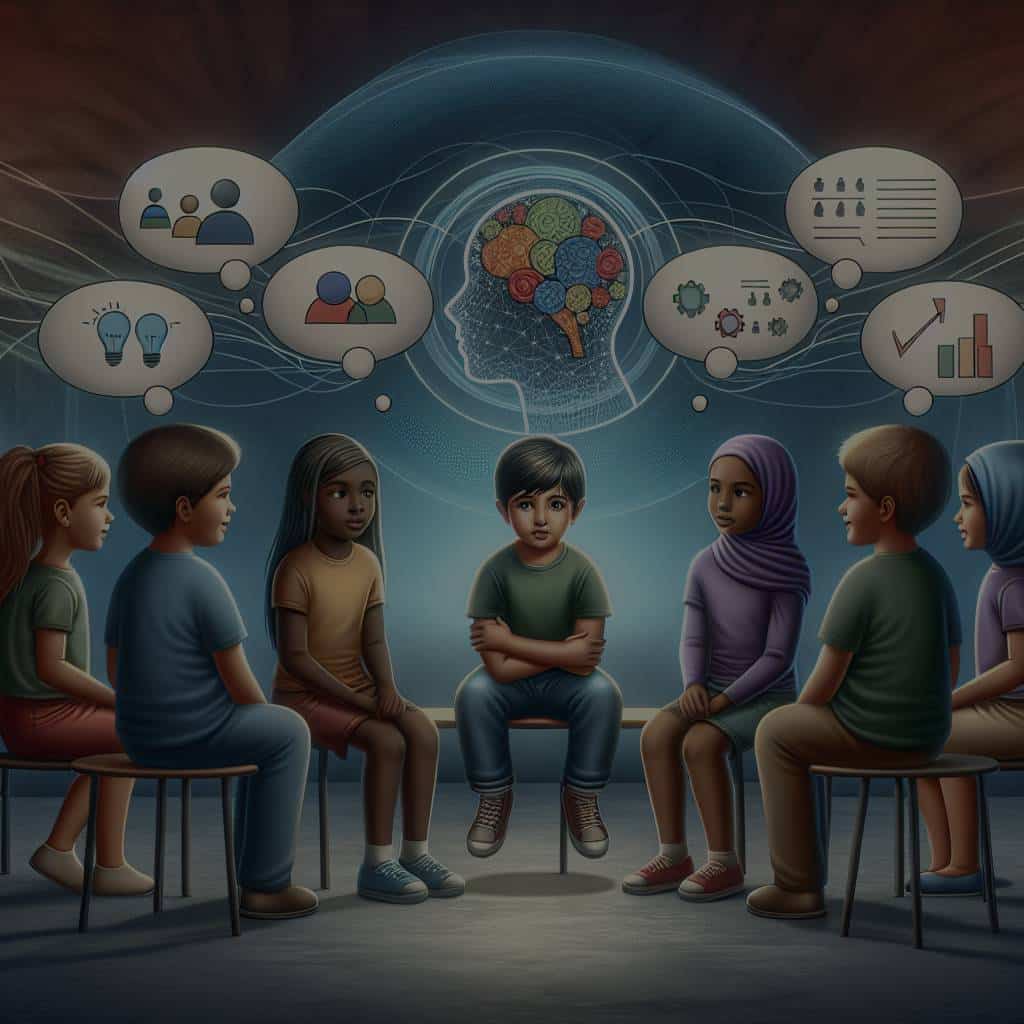What Role Does Peer Mentorship Play in the Social Integration of Individuals with Autism Spectrum Disorder?

Have you ever wondered how important social skills are in the development and integration of individuals with Autism Spectrum Disorder (ASD)? From the scholar’s perspective, the importance of peer mentorship in fostering these skills and supporting the social integration of these individuals cannot be overstated. Various studies conducted by universities and accessed through search engines like Google and research databases like PubMed, have focussed on this aspect.
The Importance of Social Skills in Autism Spectrum Disorder
A critical aspect of the development for children with autism is the ability to communicate effectively. Social skills are crucial for fostering this ability, and they play a significant role in the integration of individuals with ASD.
En parallèle : Can Community-Run Repair Cafés Reduce Stress and Boost Self-Efficacy by Teaching Practical Skills?
Communication is a two-way street, and for those with autism, it can often feel like they’re navigating a road with no signs. Social skills offer the necessary guidance, and peer mentorship provides the roadmap. By interacting with their peers, children with ASD can learn to understand social cues, respond appropriately, and build connections.
Autism is often characterized by difficulties in social interaction. However, that doesn’t mean individuals with ASD can’t learn and improve their social skills. With the right support and education, they can make significant strides towards integrating more effectively with their peers.
Dans le meme genre : Can Digital Storytelling Workshops Promote Emotional Healing in Trauma Survivors?
Role of Peer Mentorship
The role of peer mentorship in supporting individuals with autism is substantial. It serves as a platform for teaching, modeling, and reinforcing social skills, which are indispensable for their integration into society.
Peer mentorship provides an environment where participants, especially children with autism, can practice their social skills. The mentors, who are typically neurotypical peers, model appropriate social behaviors. Repetition and reinforcement help the mentees to grasp these behaviors and apply them in their daily interactions.
According to studies accessed through Google Scholar and PubMed, the effects of peer mentoring are promising. Some results show an improvement in social skills, reduction in isolation, and increase in self-esteem among individuals with ASD.
Universities across the globe are also backing the power of peer mentorship. In a study conducted by the University of California, students with autism who participated in a peer mentorship program reported significant improvements in their social skills.
The Impact of Peer Mentorship Interventions
Implementing peer mentorship interventions is an effective strategy for improving the social skills of children with autism. These interventions provide the scaffolding that individuals with ASD need to build their social skills and integrate more effectively with their peers.
Several strategies are employed in these interventions. These include social narratives, video modeling, and role-play. Participants are exposed to different social situations and taught how to respond appropriately. As a result, they can transfer these skills to real-life scenarios.
A scale often used to measure the impact of these interventions is the Social Skills Improvement System (SSIS). This tool measures social skills, problem behaviors, and academic competence. Studies using SSIS have shown that peer mentorship interventions significantly improve the social skills of children with autism.
The Power of Support and Education
Education and support play a significant role in integrating individuals with autism into society. Schools, universities, and other educational institutions must be equipped to provide the necessary support for these individuals.
In the school setting, teachers have the responsibility of creating an inclusive environment that encourages all students, including those with ASD, to interact and learn from each other. With the help of strategies like peer mentorship, they can foster social skills among their students.
In a broader scope, society needs to be educated about autism. People need to understand that individuals with ASD are not different; they just experience the world differently. With this understanding, they can provide the necessary support and acceptance.
The Future of Peer Mentorship in Autism
The future of peer mentorship in autism looks promising. With the increasing number of studies proving its effectiveness, more and more schools and universities are adopting this strategy.
Technology also plays a significant role in the future of peer mentorship. Virtual reality, for instance, is being used to provide training for social skills. Participants can practice their social skills in a virtual environment that mimics real-life scenarios.
Despite its promise, there is still much to explore in the field of peer mentorship in autism. There is a need for further research to understand the specific elements that make these interventions successful and to tailor them according to the needs of each individual.
However, what is clear now is that peer mentorship offers hope. It provides a way for individuals with autism to navigate the complex world of social interaction. Through this support, they can integrate more effectively into society, proving that with the right guidance, they can overcome any roadblock.
Enhancing Social Integration through Peer Mentorship
While social skills can be a challenge for individuals with autism, peer mentorship provides a path toward social integration. Peer mentorship programs allow children with autism to engage with their neurotypical peers in a structured, supportive environment. Here, they can practice crucial social skills, from understanding social cues to responding appropriately in various social scenarios.
In these programs, neurotypical peers model appropriate social behaviors that the children with autism can imitate and learn. This technique of modeling and repeating behavior has been shown to be effective. As per a study by the University of California cited in Google Scholar, students with autism who participated in a peer mentorship program showed significant improvements in their social skills.
Peer mentorship also reduces isolation, a common issue faced by individuals with autism. Through regular interactions with their mentors and peers, they build connections, enhancing their self-esteem and sense of belonging. These improvements, in turn, foster better social integration.
Universities worldwide are recognizing the value of peer mentorship, as seen in the increasing number of studies on this topic on platforms like PubMed and Google Scholar. However, the success of these programs relies heavily on the support and education offered by schools, universities, and society at large.
Conclusion: The Path Forward for Peer Mentorship in Autism
The role of peer mentorship in supporting the social integration of individuals with autism spectrum disorders cannot be overstated. As research studies accessed through PubMed and Google Scholar affirm, such interventions lead to significant improvements in the social skills of children with autism.
The use of technology, such as virtual reality, opens up new possibilities for the future of peer mentorship. By simulating real-life scenarios, these tools allow individuals with autism to practice their social skills in a safe and controlled environment. However, the field of peer mentorship in autism is still ripe for exploration. More research is needed to understand the specific elements that make these interventions successful and how they can be tailored to meet the unique needs of each individual with autism.
In conclusion, schools, universities, and society at large have a vital role to play in supporting these initiatives. By fostering an inclusive environment and promoting understanding about autism, they can ensure that individuals with autism receive the necessary support and acceptance. With the right guidance and support, children with autism can conquer the challenges of social interaction and integrate more effectively into society. This journey towards social integration, while filled with challenges, is also filled with immense potential and hope. With continued research and support, we can unlock this potential and create a more inclusive society for individuals with autism.
